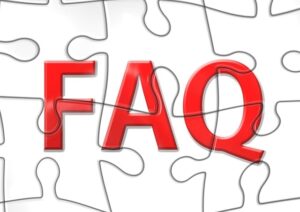The FAQPage schema, implemented via JSON-LD, enhances online content and user experience by guiding search engines in displaying FAQs as rich, interactive snippets. This structured data format allows search engines to extract and present dynamic FAQ content directly on the Search Engine Results Page (SERP), optimizing FAQ Snippet Optimization. Implementing a Schema for FAQs, like the Accordion schema, brings benefits to both user experience and SEO, helping search engines understand content better and improving website visibility through rich FAQ results. Well-structured FAQs can significantly enhance engagement by offering quick access to information, driving higher click-through rates, and increasing time spent on the site. Success is measured using KPIs like CTRs, average session durations, SERP performance, and other analytics tools.
Adding the FAQPage schema to your website’s content is a powerful strategy to boost user engagement and improve search engine visibility. This technical overview explores how implementing this schema can enhance your site’s rich FAQ results, offering valuable insights directly within the search engine results page (SERP). By structuring your FAQ data with essential elements, you optimize user experience and SEO, ensuring your website stands out in a competitive online landscape. Discover best practices for integration and measurement techniques to maximize the benefits of this schema.
- Understanding FAQPage Schema: A Technical Overview
- Benefits of Implementing FAQPage for User Experience and SEO
- Essential Elements of a Well-Structured FAQSchema
- Integrating FAQSchema into Your Website's Content Strategy
- Best Practices for Optimizing FAQResults on Search Engines
- Measuring Success: Tracking Engagement and SERP Performance
Understanding FAQPage Schema: A Technical Overview

The FAQPage schema is a powerful tool for enhancing online content and user experience. This structured data format provides search engines with clear guidance on how to display frequently asked questions (FAQs) in rich, interactive snippets. By implementing this schema, webmasters can expect improved visibility in search results, attracting more users to their site.
From a technical standpoint, the FAQPage type is defined using JSON-LD, allowing developers to embed relevant metadata within the HTML code. This includes question and answer pairs, along with additional properties like date, author, and a unique identifier. By incorporating this schema, search engines can extract and present dynamic FAQ content, offering users concise and helpful answers directly in the search engine results page (SERP). It’s an effective strategy for FAQ Snippet Optimization, ensuring your site stands out and provides value to potential visitors.
Benefits of Implementing FAQPage for User Experience and SEO

Implementing a FAQPage schema offers significant advantages for both user experience and search engine optimization (SEO). By adopting this structured approach, websites can present their frequently asked questions in a clear, organized manner, enhancing usability. Users benefit from easy navigation, quick answers, and an intuitive interface, which encourages engagement and reduces bounce rates.
From an SEO perspective, adding a Schema for FAQs, such as the Accordion schema, can significantly improve website visibility on search engine result pages (SERPs). This structured data helps search engines understand the content better, enabling them to display rich FAQ results—including direct answers to user queries—in the SERP. This not only increases click-through rates but also optimizes the site’s real estate, ensuring a more prominent online presence.
Essential Elements of a Well-Structured FAQSchema

A well-structured FAQ schema is a powerful tool to enhance user experience and boost search engine rankings. When implementing a Schema for FAQs, several key elements contribute to its effectiveness. Firstly, each question should be clearly defined with a concise and accurate natural language query. This ensures that search engines can easily interpret the intent behind each FAQ, leading to more relevant rich FAQ results. Additionally, providing comprehensive answers is vital; detailed responses that cover all aspects of a topic not only satisfy user information needs but also encourage longer engagement on the page.
The Schema FAQPage type offers specific attributes like `name`, `datePublished`, and `image` that enable search engines to understand the content’s nature and context. Utilizing these fields, you can further optimize the schema for better visibility. For instance, assigning a relevant image related to the topic can make the featured snippet more visually appealing, increasing the chances of capturing user interest. Incorporating such structured data through How to Add FAQ Schema practices is essential for improving SERP real estate and overall website performance.
Integrating FAQSchema into Your Website's Content Strategy

Integrating FAQSchema into your website’s content strategy is a strategic move to enhance user experience and boost search engine rankings. By implementing this schema for FAQs, you’re essentially providing search engines with a structured way to understand and display frequently asked questions alongside relevant answers directly in the search results page (SERP). This simple yet powerful technique can significantly improve engagement by offering users quick access to information without them needing to click through to your website.
FAQ Snippet Optimization becomes more effective when using Accordion Schema SEO, which allows for a dynamic presentation of FAQs as an accordion or expandable list. Each question-answer pair can be highlighted, making it easier for users to scan and find the most relevant info. Rich FAQ Results follow suit, enhancing the visual appeal and interactivity of your content, ultimately driving higher click-through rates from search results and increasing time spent on your site.
Best Practices for Optimizing FAQResults on Search Engines

Implementing a Schema for FAQs is a powerful strategy to enhance your website’s visibility and user experience when it comes to search engine optimization (SEO). When structuring your FAQPage, focus on creating clear and concise questions that accurately reflect user queries. Each question should be accompanied by comprehensive answers, ensuring a satisfying user experience. The use of Accordion Schema SEO is beneficial as it allows for an organized presentation of the FAQs, enabling search engines to extract key information efficiently.
For optimal FAQ Snippet Optimization, follow these best practices: utilize structured data markup to provide rich FAQ Results on SERPs. Ensure each question-answer pair is well-defined and distinct, allowing search engines to understand the context clearly. Additionally, include relevant keywords naturally throughout your content to further boost SEO performance.
Measuring Success: Tracking Engagement and SERP Performance

Measuring success is a critical aspect of implementing a Schema for FAQs. By utilizing tools like Google Search Console and analytics platforms, website owners can track key performance indicators (KPIs) to gauge the effectiveness of their FAQPage schema. Engagement metrics, such as click-through rates (CTRs) and average session durations, provide insights into how users interact with the content. Higher CTRs and longer sessions indicate that the FAQ snippets are appealing, relevant, and valuable to readers, driving higher user engagement.
Additionally, monitoring SERP performance is essential. With Accordion Schema SEO and FAQ Snippet Optimization, websites can now display rich, structured answers directly in search results, standing out among competitors. By analyzing impressions, click-through rates, and position for targeted keywords, website owners can identify areas for improvement and ensure their schema markup is contributing to better search engine rankings and a more prominent online presence.
